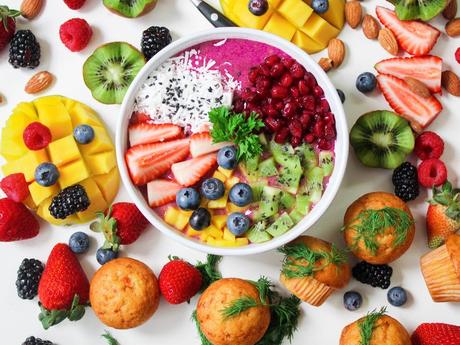
When people consider healthy eating, they typically just consider the types of meals they eat. We frequently overlook the fact that developing healthy eating habits is one of the most crucial parts of eating healthfully. You might need to change some routine behaviors in order to consume more nutrient-dense meals. But relax—not it’s as difficult as it seems!
You’ll find it simpler to eat well and resume enjoying food if you establish good eating habits as opposed to worrying about every meal. Developing these habits can assist you in reaching your objectives and feeling more confident about your eating habits, whether your goal is to reduce weight or simply eat a healthier, more balanced diet.
Moderate your eating. The secret to success is moderation. Giving yourself the freedom to eat anything you want in moderation is crucial for your nutrition and overall wellness. Reward is reward is reward! Enjoy the moment rather than feeling guilty about indulging yourself to an ice cream cone. Treating yourself once in a while is totally OK; it’s how eating in moderation functions. Happiness is learning. Reduce the amount of the foods you want to avoid that you buy. It will be difficult to resist temptation if your refrigerator and cabinet are filled with sugary and unhealthy foods. Instead, stock up on wholesome snacks.
Portion management is a key thing to think about. The portion size encourages moderation and deters excess eating. Due to the extra calories you consume from larger servings, which will cost you more, you will be persuaded to eat more. Use more compact plates. You may greatly improve your portion control by plating. Using a smaller plate can fool your brain into believing you’re eating more, according to a study, helping you avoid overeating. Use portions that you have carefully measured. Try to adhere to the suggested serving sizes. You can try to cook things in new and exciting ways like salads, stir frys and how to roast eggplant halves.
Be aware of your body. You shouldn’t keep eating past the point at which you begin to feel uncomfortable, even if you don’t immediately feel full. Eat only when you are actually hungry, never when you are merely bored. When you eat when you aren’t hungry out of habit, you eat too many calories from fewer items that are high in nutrients. eating gradually Think on the texture and flavor of your dish. Instead of gulping down your food, take the time to savour it.
Avoid skipping meals. Skipping meals slows your metabolism and may even make you gain weight. As a result, it also reduces blood sugar levels. Breakfast must be eaten every day. Your metabolism will be boosted and you’ll feel less hungry during the day if you eat a filling breakfast at a sensible hour. Keep wholesome snacks on hand at the office. It’s simple to grab a bag of greasy chips from the vending machine at work when you’re hungry. By keeping nuts, rice cakes, veggie chips, or other healthy snacks at your desk, you can always be prepared for hunger at work.
Drink more water. Make drinking water a routine. Amazing advantages of water for health and nourishment. Use water in place of soda and other sweet drinks. A significant source of empty calories is soda and other drinks with added sugar. Have access to cool, pure water at all times. To effortlessly consume the recommended amount of water each day, make sure chilled water is always accessible. Consume stuff that will keep you healthy. Eating natural foods is necessary because they give us all the nutrients we need to survive. If you eat items that have been grown and harvested, you will inevitably feel better and be overall healthier. You can make meals using the things you like best, like cannabis butter.
Recognize the reality. Recognize the food that you are actually eating. Knowing how many nutrients you are getting from your meals is essential for healthy eating. Understand how to interpret food labels. Regularly check the levels of sugar, salt, saturated fat, and trans fat. Take a look at the ingredient list.
When it comes to creating healthier eating habits, keep a positive outlook. Self-punishment or overindulgence will simply deplete your willpower and self-assurance. The reality is that there is little evidence to support the long-term benefits of crash diets. Concentrate on developing healthy habits that will alter the way you view food. These modest adjustments may ultimately have a significant impact on your wellbeing.
Thank you for reading!


